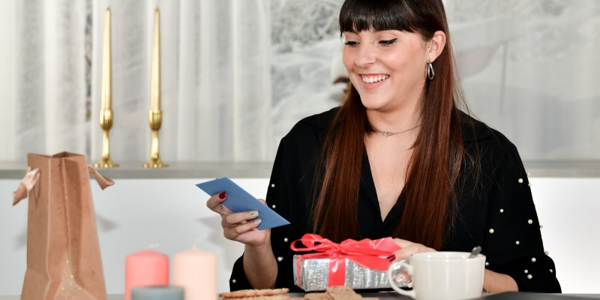In recent years, gift-giving has shifted from material presents to experiences that create memories. This change is fueled by an evolving mindset that values emotional connections over material items. Experiential gifting is rapidly becoming a preferred choice, allowing individuals to offer unique and personal experiences rather than traditional, often forgettable, material gifts. As consumers seek meaning and deeper fulfilment, the trend toward gifting experiences over objects grows.
Gift-giving has long revolved around physical items, jewellery, gadgets, or clothing meant to convey love and appreciation. But as consumer preferences evolve, there's been a noticeable shift away from these traditional gifts. Experiences like travel, dining, adventure, or wellness are now replacing tangible objects.
This preference change reflects a broader societal trend where people seek meaning over materialism. More than ever, consumers value the opportunity to create memories, connect with others, and indulge in experiences that leave lasting impressions. While a physical gift may offer temporary satisfaction, an experiential gift has the power to resonate intensely, often leading to more profound emotional connections.
The digital age has also played a pivotal role in this shift. With social media amplifying the value of shared experiences, many are drawn to give gifts that can be celebrated publicly or documented through photos and stories. The rise of platforms like Instagram has encouraged people to invest in memorable experiences they can relive through shared moments online. Gifting an experience like a vacation, a concert ticket, or even a cooking class allows recipients to engage in activities they can reflect on for years, both in person and online.

One key reason experiential gifting has become so popular is the contrast between emotional and material value. A physical item can be appreciated, used, and then forgotten, but the emotional value of an experience often surpasses the fleeting joy of an object. Experiences tend to evoke stronger emotional reactions, whether the thrill of an adventure or the peaceful joy of a retreat.
Another aspect that sets experiential gifts apart is their inherent personalization. Tailoring an experience to someone's specific interests demonstrates a deeper understanding of who they are. Whether gifting a loved one a cooking workshop because they're passionate about culinary arts or offering tickets to a theatre performance for a drama enthusiast, these personalized experiences show thoughtfulness and consideration. This level of care often leads to a more profound emotional impact than a generic item off the shelf.

As the world becomes more aware of environmental and ethical concerns, minimalism and sustainability have influenced consumer behaviour. The shift toward minimalism advocates owning fewer things and focusing on meaningful life experiences. Many people now embrace the idea of "less is more," choosing to reduce their material possessions and focus on what truly adds value to their lives.
Physical gifts, while appreciated, often add to the clutter in our homes and contribute to waste over time. Contrastingly, experiential gifts do not require packaging, materials, or long-term storage. This aligns with a more sustainable lifestyle, minimizing environmental impact. Gifting an experience, like a yoga retreat or a weekend getaway, eliminates the need for excessive packaging or transportation, making it an environmentally conscious choice. As people become more aware of their carbon footprint, opting for experiences over physical gifts aligns with their values of sustainability and minimalism.
Minimalism isn't just about reducing clutter; it's about reshaping how we think about value. Experiential gifts contribute to this mindset by shifting the focus away from materialism and consumerism. Instead of purchasing something that may be used briefly, experiential gifts foster the idea that life should be about moments and connections. People are increasingly embracing this philosophy, leading to the rise of minimalistic gift-giving practices.

One of the most potent aspects of experiential gifting is its ability to create lasting memories and foster deeper connections. A physical gift may serve as a reminder of an occasion, but experiences allow people to bond more meaningfully. Shared moments, whether with family, friends, or partners, often strengthen relationships and leave a long-lasting impression.
Experiences can evoke emotions and create memories that endure far beyond the moment. For example, a surprise hot-air balloon ride, a shared adventure on a hiking trail, or an unexpected weekend at a boutique hotel can offer excitement, joy, and a sense of wonder that material items simply cannot. These moments are often cherished and revisited in conversations, photos, and reflections, strengthening individual bonds.

Part of the appeal of experiential gifting is the element of surprise. Unlike a physical gift that can be anticipated or expected, experiential gifts often involve an activity or event outside the recipient's usual routine. This surprise adds excitement and joy to the experience, making it even more memorable. For example, surprising someone with a wine-tasting tour, a concert ticket, or an art workshop invites spontaneity, which can further enhance the experience's emotional value.
Experiential gifting often involves shared activities that strengthen relationships. Whether it's a couple enjoying a romantic dinner, friends embarking on a road trip, or siblings taking part in a weekend escape, these shared experiences allow individuals to bond and create memories. The sense of connection fostered by these experiences can deepen relationships in ways that material gifts cannot.

As we move further into a society that values minimalism, sustainability, and emotional connections, it’s no surprise that experiential gifting is becoming the new standard. Experiences offer a chance to connect, create memories, and share meaningful moments, which often resonate more deeply than physical gifts.
This shift in our approach to gift-giving reflects a broader cultural change. People now prioritize lasting emotional value over the short-lived satisfaction of material items. In this context, experiential gifting represents a more thoughtful and impactful way to celebrate and strengthen our relationships.